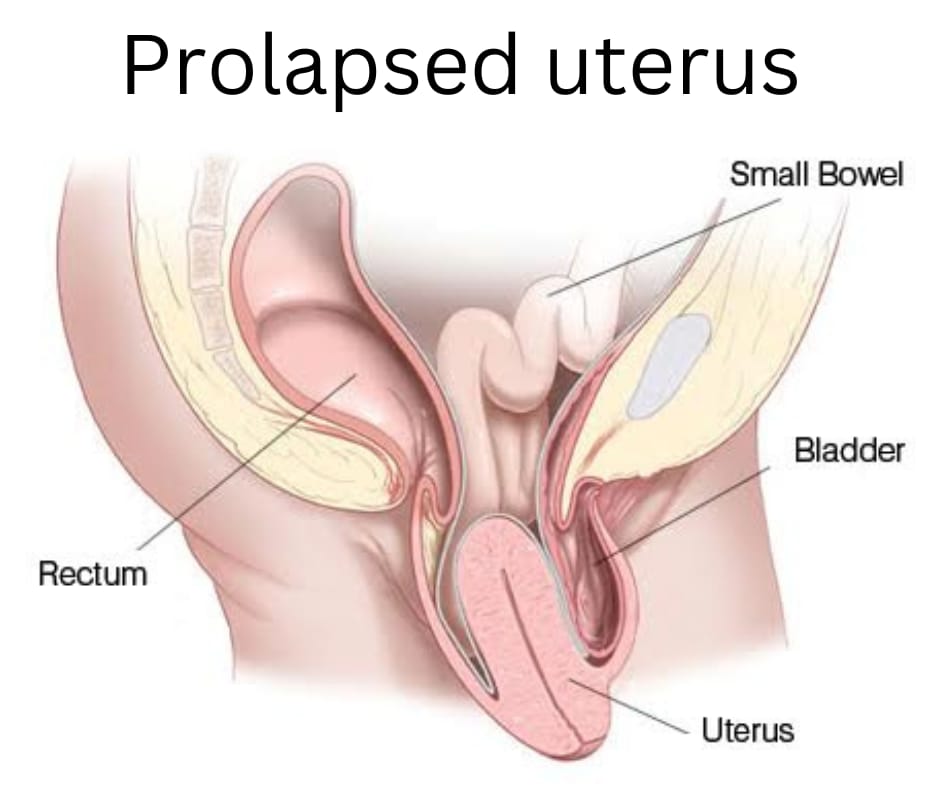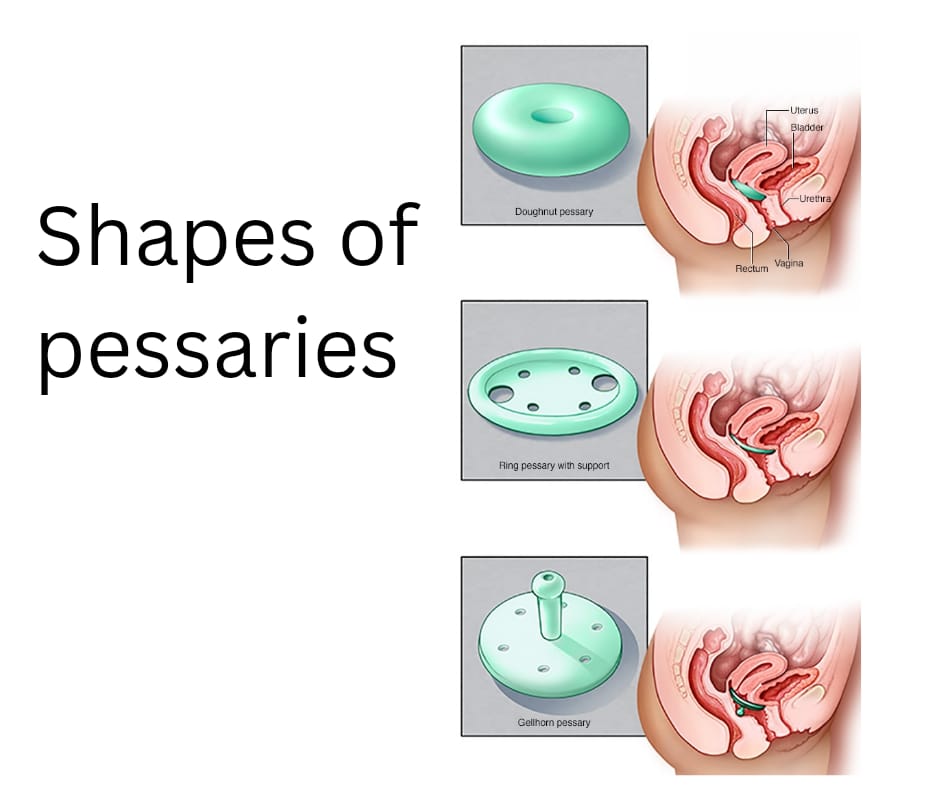Prolapsed uterus bleeding is one of the common conditions that happens to females by age due to the loss of estrogen that keeps pelvic muscles strong.
Prolapsed uterus bleeding happens when muscles and tissues around the uterus become weak, so the uterus drops down into or out of your vagina, this affects the severity of uterine prolapse.

What are the risk factors for prolapsed uterus bleeding
Prolapsed uterus (prolapsed uterus bleeding) happens to females in many cases:
- After many vaginal deliveries or the delivery of a big baby.
- Being overweight.
- Chronic constipation.
- Chronic cough.
- Over lifting.
- Family history of a prolapsed uterus.
The prolapsed uterus may be mild or severe depending on how weak the muscles around the uterus become.
Stages of the prolapsed uterus
Stage l
The uterus slips to the upper part of the vagina.
Stage ll
The uterus slips to the lower part of the vagina.
Stage III
The uterus is protruding from the vagina.
Stage IV
The uterus slips outside the vagina (complete prolapse).
The prolapsed uterus bleeding
It is vaginal bleeding that happens because of uterine prolapse into the vagina in stages III and IV, it causes long, heavy periods and intermittent bleeding.
The prolapsed uterus, especially prolapsed uterus bleeding will affect your activities and make you uncomfortable.
Symptoms of the prolapsed uterus
Symptoms vary depending on the stage of uterine prolapse.
Stage I (mild cases)
May have no symptoms.
Stage III or IV (moderate to severe)
This may cause many signs as the uterus slips out of its position and make pressure on pelvic organs like the bladder and bowel, this causes you to feel:
- Pain in pelvis and abdominal.
- Constipation.
- Pain during sex.
- Vaginal bleeding (prolapsed uterus bleeding) and increased discharge.
- Lower back pain.

Complications of the prolapsed uterus
There are some conditions associated with a prolapsed uterus.
Cystocele
The bladder drops out or into your vagina.
Rectocele
Rectum bulges out or into your vagina.
Enterocele
Part of the small intestine bulges out or into your vagina.
How to diagnose prolapsed uterus
First, your doctor will diagnose your case and determine your stage depending on the symptoms, asking you if there is a chronic cough, strain, or previous vaginal delivery ask if there is bleeding (due to prolapsed uterus bleeding)
Then pelvic diagnosis by a device called a speculum examines the vaginal canal, cervix, and uterus.

Treatment of prolapsed uterus
For mild cases (stage I)
1) Kegel exercise workouts:
- Tightens your pelvic muscles as you try to hold back urine for a few seconds then release it, repeat that ten times.
- Do this exercise anywhere (up to four times per day).
2) Try to avoid the causative agents for prolapsed uterus:
- Lose excess weight.
- Avoid heavy coughs.
- Avoid over-lifting.
- Avoid constipation by eating foods containing fiber, fluids, and whole grains.
For moderate to severe cases (stage II to stage III)
Using pessary is very effective in this stage.
A pessary is a rubber device that is inserted into the uterus and fits under the cervix, it helps push up and stabilize the uterus.
Disadvantages
- It is a temporary, not a permanent solution.
- It has a risk of vaginal infection.
- Must be removed before having sex.
It was found that vaginal estrogen when used in conjunction with a pessary to restore hormones needed to keep muscles and tissues of the uterus and vagina strong.
For severe cases (stage IV & prolapsed uterus bleeding)
Suspension and hysterectomy are the only solutions to prevent prolapsed uterus bleeding.
- Suspension
Is done to replace the uterus into its original position by attaching pelvic ligaments to the lower part of the uterus.
Hysterectomy
It is the removal of the uterus through a vaginal or abdominal cut, it is more effective than suspension but this means you don't plan to have a baby.
Finally, if you have prolapsed uterus bleeding there is some advice to get better:
Eating foods rich in iron as losing much blood may make you anemic, so you must follow your hemoglobin level.
Vitamin C supplements may reduce vaginal bleeding resulting from prolapsed uterus bleeding.
Hydration: drinking lots of water is a good idea as you lose high amounts of fluids.
To avoid prolapsed uterus, especially prolapsed uterus bleeding:
- Try to keep your weight ideal as gaining weight is a risk factor.
- Eat foods rich in fiber and whole grains to avoid constipation.
- Avoid straining and over lifting.
Although Prolapsed uterus and prolapsed uterus bleeding are not life-threatening problems, they affect all your activities and your life.
So try to keep away from them as you deserve to live a better life for yourself and your family.


You must be logged in to post a comment.